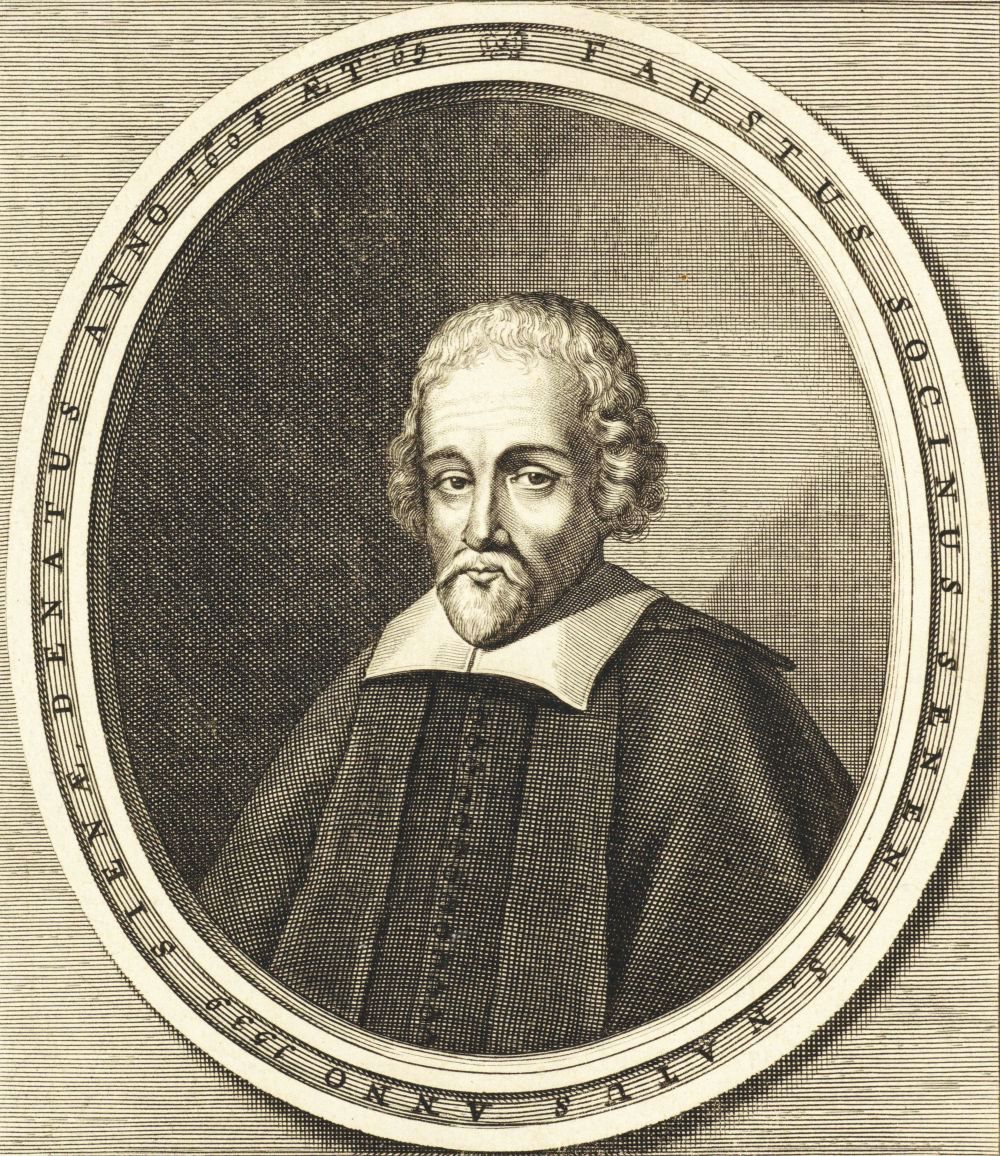
Faustus Socinus (1539–1604), the namesake of Socinianism
is a system of
Christian doctrine named for
Fausto Sozzini (Latin: Faustus Socinus), which was developed among the
Polish Brethren in the Minor Reformed Church of Poland during the 15th and 16th centuries
[1] and embraced also by the
Unitarian Church of Transylvania during the same period.
[2] It is most famous for its
Nontrinitarian Christology but contains a number of other unorthodox beliefs as well.
Beliefs
Socinian theology, as summarised in the
Racovian Catechism, rejected the views of
orthodox Christian theology on God's knowledge, on the
doctrine of the Trinity and the divinity of
Christ, and on
soteriology.
Christology
The Racovian publications, like the Sozzinis, rejected the
pre-existence of Christ and held that
Jesus Christ did not exist until he was conceived of the
virgin birth as a human being. This view had occurred before with the 4th century bishop
Photinus, but differed both from the mainline
Protestant and
Catholic views, which hold that the
Logos referred to in the
Gospel of John was God, thus is uncreated and eternal.
Human nature
The Socinians held that humans were created mortal in the beginning and would have died naturally whether Adam and Eve had eaten from the tree or not.
[4] They also rejected the doctrine of
original sin.
[5]
Atonement
Socinianism also rejected the
propitiatory view of atonement.
[6]
Predestination and omniscience
The Socinians believed that God's omniscience was limited to what was a
necessary truth in the future (what would
definitely happen), and did not apply to what was a
contingent truth (what
might happen). They believed that, if God knew every possible future, human
free will was impossible, and as such rejected the "hard" view of omniscience.
[7]
